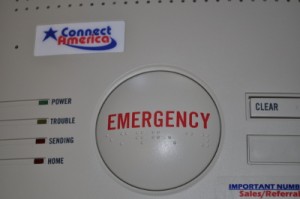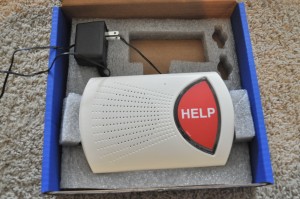Home Safety in the “Golden Years”
 The years after retirement can be some of the freest, most exciting years of a person’s life: without career obligations, seniors are can now explore new hobbies and interests that they’ve always wanted to try, and now have the time. Many seniors value their independence while they experience the joys of retirement. Perhaps the most important way to preserve independence and stay happy and healthy after retirement is to identify and address any safety hazards in the home. For seniors who live alone, finding the best medical alert system is an important step in establishing home safety.
The years after retirement can be some of the freest, most exciting years of a person’s life: without career obligations, seniors are can now explore new hobbies and interests that they’ve always wanted to try, and now have the time. Many seniors value their independence while they experience the joys of retirement. Perhaps the most important way to preserve independence and stay happy and healthy after retirement is to identify and address any safety hazards in the home. For seniors who live alone, finding the best medical alert system is an important step in establishing home safety.
As vision and balance are often a problem as we age, a safe home environment becomes increasingly important with every passing year. If possible, adult children or a trusted friend of the older adult should perform a walk-through of the home once a year to identify any potential safety hazards.
Safely Taking Medications
Many seniors are on multiple medications, each of which has a list of known side effects. Mixing the wrong medications, taking them at the wrong time, or using the incorrect dosage can be extremely dangerous. To avoid any of these errors, always keep medications in their original packaging with instructions. Only take medications in a well-lit area so you can see clearly, and if you need labels with larger print, don’t hesitate to ask your doctor or pharmacist.
If you tend to forget to take your medications at the correct time, try leaving them set out where you’re sure to see them. If you live with a partner or caregiver, ask them to help remind you. Setting an alarm on a phone or watch to beep when it’s time to take your medicine is another effective strategy. Some wearable senior alert systems include the option of setting regular medication reminders, and system with this feature could be the best medical alert for you. Visit our reviews page to learn about the different features and brands of the best medical alert systems currently available.
Preventing Falls
Poor eyesight, decreasing ability to balance, and weakening bones and muscles come together to create a perfect storm that can lead to devastating falls for seniors. Floors should be kept clear and free from clutter, any changes in floor height should be clearly marked to avoid tripping, and cords should be tucked away. If your home has stairs, make sure they are well-lit, slip-resistant, and equipped with a sturdy handrail or bannister. In the event of a fall, a wearable senior medical alert system makes it easy to call for help, even if you can’t reach the phone.
Fire Prevention and Safety
As hearing often becomes impaired with age, it is important than ever to make sure your home is equipped with a loud smoke and carbon monoxide detectors throughout the home. Make sure they produce an alert that can be heard from any room, either awake or asleep, and check the batteries regularly. For smoke detectors on the ceiling, ask for help, and never climb a ladder to change the batteries if you are home alone.
AARP offers a printable online home safety checklist for seniors and their loved ones.



